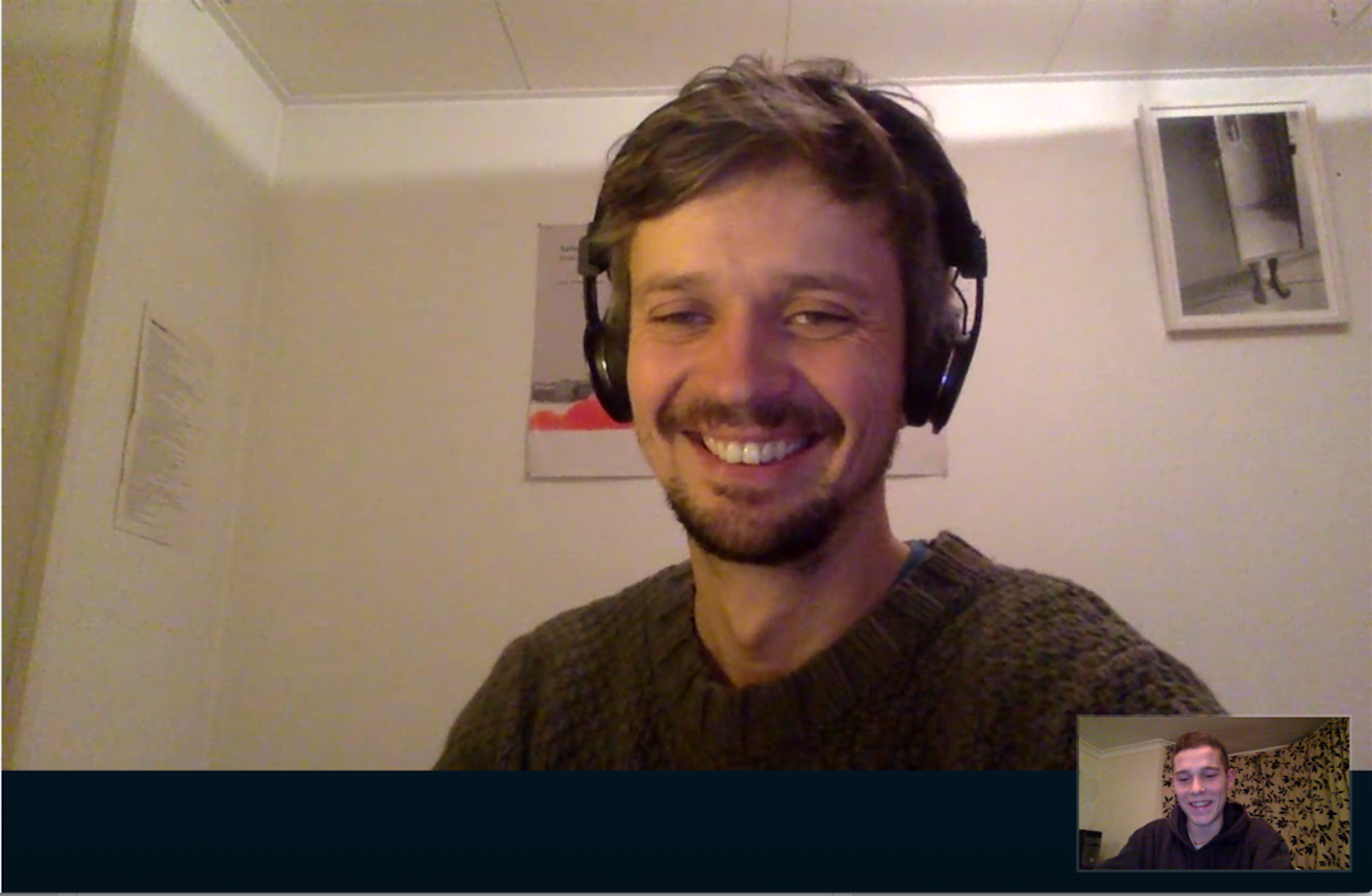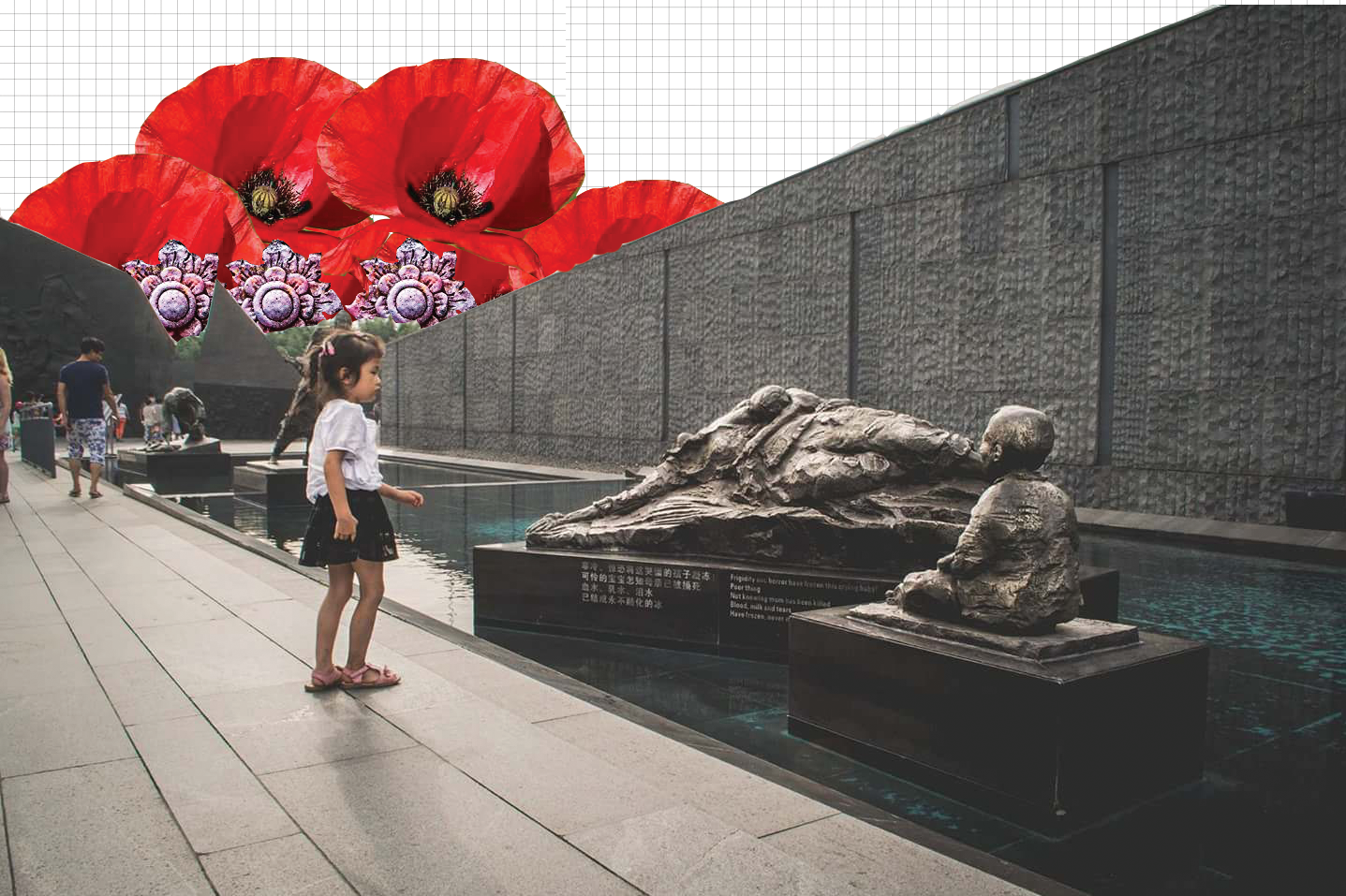
Creating Narratives to Change the Mood
On the first page of our story
The future seemed so bright
Then this thing turned out so evil
I don’t know why I’m still surprised.
Even angels have their wicked schemes
And you take that to new extremes
But you’ll always be my hero
Even though you’ve lost your mind.
So run the auto tuned first lines of Rihanna’s Love The Way You Lie Part II, played over a slow zoom on the face of a young Colonel Gaddafi. The shot is one familiar to anyone who has seen Adam Curtis’s 2016 film Hypernormalisation, a documentary about the creation and implementation of fake news, but this edit was a new one. As Rihanna’s voice slides through the chorus, the zoom cuts to footage of the pursuit and killing at close range of Gaddafi in 2011. The chaos of these scenes is in turn spliced with archive film of sharp ceremonial troops marching up the steps of Buckingham Palace, and clips of David Cameron addressing the Libyan people to declare his support for the Arab spring. Cutting sharply between these worlds with increasing rapidity, the short clip ends dramatically on a stuttering close up of Gaddafi as he crumples to the ground next to the grill of his own escape vehicle, his blurred face contorted in pain.
This clip formed the end of Curtis’ presentation as part of the recent BBC Arabic Festival. The focus of his talk was how British politicians, together with those in power in Washington, have used certain stories about the Arab world as a means to further their own interests, manipulating these stories with little regard for an accurate depiction of the actual political situation in the region. He aimed to show how these politicians had used one man, Muammar Gaddafi, as a pantomime villain to act as the foil to their moral superiority and authority. After plucking him out of obscurity in the late 1970s, Western powers had switched between representations of him as evil despot and enlightened political thinker, and Gaddafi was only too willing to play along in order to raise his public profile. He even appeared on British television alongside distinguished academics, propounding the principles of his ‘Little Green Book’. Yet this theatrical and contradictory relationship ended in the abrupt desertion of Gaddafi and his family by the PR team, political advisers and journalists who had come to form their entourage during the final stages of his interaction with Western politics. He was left totally alone, and in 2011, following NATO-led military involvement, Cameron endorsed his death. When the former PM arrived in Libya along with President Sarkozy, they were given a hero’s welcome.
In the context of this complex story, Rihanna’s seemingly empty words become a haunting description of the manipulation of Gaddafi’s image by this political elite. Curtis is renowned as a film-maker for his use of music, and his choice here may seem bathetic, even trite. But it was the banality of the familiar pop motifs, ready to be filled with meaning at the listener’s wish, which allowed him to take snide aim at the hypocrisy of those behind the manipulation: the British establishment. For what Curtis’s story about Gaddafi’s treatment at the hands of Western countries really reveals is the way in which those in power in Britain have lost their way. Rather than being guided by the ideological myths of ‘good vs. bad’ created by the neo-conservatives around President Regan, or even the white-saviour industrialist complex of much humanitarian work done by Western countries, our politicians have no sense of where their decisions are taking us.
The never-ending hangover of the British Empire means that our establishment is usually willing to buy into the narrative of the good and the bad, creating a simplified world where we cast ourselves as morally superior ‘liberators’ who bring civilization to the darker regions of the world. But this sense of authority came crashing down in 2003-4 in the atrocities and hypocrisies of the Iraq war, leading to an aching dearth of guiding ideological principles. Cameron endorsed Gaddafi’s death because it was the expedient thing to do and, after making warm and fervent promises to guide Libya into a brighter future, British forces retreated, having done nothing to establish a democracy. To Curtis’s mind this kind of cynical pragmatism, which takes each move as it comes, sharply reveals the lack of guiding belief. Nothing changes, neither prosecution nor promises of support are followed through on, and no one confronts the fragmentation of societies that leaves the door open to the rise of extremism. So, what comes next? How does one re-unify fractured states? Curtis’s answer, perhaps unsurprisingly for a film maker, is to use new narratives to start describing our situation differently.
Yet, there was something undeniably evasive about Curtis’ endorsement of creating strong counter-narratives. He claimed repeatedly that his aim was not to offer a solution, but to point out where the British establishment is going wrong. Indeed, as a creative who spends all his time immersed in archive footage, he is part of the offending group who are held back from creating new myths by the repackaging of past narratives. His criticisms were therefore oddly reflexive. While calling for new counter-narratives through the use of new counter-narratives, he claimed to have no answers himself. He used an interpretation of the recent past to claim that we can no longer continue to use old stories as guidance. His list of other unsuitable sources was also not very encouraging. Journalism can only analyse what is now. Television serves only to make us feel clever about what we already know. Pop music is stuck in the individualism of the 1960s counter-culture movement. Condemning of fakery, or a rehabilitation of those who ‘weren’t that bad with hindsight’ (cf. George Bush Jr., Tony Blair) doesn’t change anything either.
These narratives will instead come from imagination. Through a combination of honesty and fantasy, no doubt propelled by the potential shitshow of global politics in the years to come, we will simply have to emerge with new stories to guide our actions. While we might feel ourselves to be in the grips of a dark apocalypse, this will not last. We should have the detachment from this mood to realise that it is ideologically very suitable to those currently in power, and does not best serve our own interests. Moods move through society, and the narratives we choose to showcase are largely responsible for their creation. They will also inevitably best suit certain groups, just as the mood created by the manipulation of Gaddafi’s image served the interests of the British establishment at that point. Moods are not absolute: they can be manipulated through use of popular narrative.
Imagination is therefore a way in which we can transcend the present mood, and look for a world that is not coloured by the rise of global fascism. Rather than resigning oneself to the current situation, there is also the choice to think differently, and go about inventing the world anew. This was the idealist vision that Curtis ultimately seemed to be endorsing, and that his own deconstructive approach to the present situation hoped to open the way to. Curtis’s approach to film-making itself seems to be the making of a strong counter-narrative, and a means of creating possibilities for other storytellers to step up and strengthen this alternative mood. It may be high time for other groups to acknowledge the power of narratives to bring about a shift in our perception of our situation, and to stop constantly deflecting this power with cynicism. Narratives based on a guiding ideal have the capacity to take us to new places, and we should be more receptive to being moved in this way. For the more imaginative among us, it is also time to realise the power of narrative to make things happen, and to start telling different stories about the world we want to see. Story-telling is often sidelined as a craft in favour of facts or theories, but all the ways in which we describe the world are stories of a kind, delivered from a certain perspective and with a certain vocabulary. We deal in narratives everyday; it’s time we took more active role in their creation.
Photo credit: flickr







